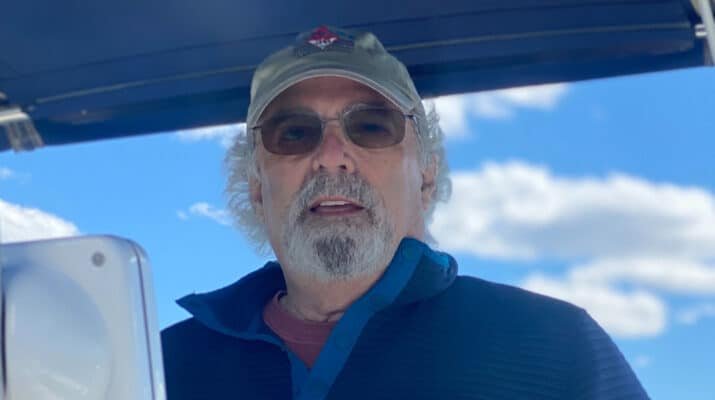By Deborah Jeanne Sergeant

Roger Hare of Marcellus thought he was in pretty good shape when he was 44.
He had played sports in college and had remained active. His cholesterol was low and his diet was pretty good.
But he had a few strikes against him — he was a heavy smoker, his stress was through the roof and his genetics were against him.
Just before turning 45, he experienced his first heart attack.
Afterwards, he quit smoking and began exercising more and made a few changes in his business to lower his stress level.
“I was forced well before my time to face my mortality,” Hare said. “I tried to make some conscious decisions about how I wanted to live my life, finding a balance between normal attributes of life and improving my heart health.”
Ten years later, however, he had a second heart attack, a severe one, which caused him to reevaluate his health regimen, including his diet.
Hare began eating organically and decided to eat red meat for occasionally.
He realized that self-employment was much better for his health since it lowered his stress.
Hare began practicing yoga and keeping more physically active. When he was very young a friend’s father had a heart attack and Hare recalls that he never went outside again.
“It’s always been a balance between my awareness of my health and genetics and history and trying to balance that with living a meaningful life,” he said. “The most difficult thing for me is avoiding denial because it’s very easy for me to sit around and say, ‘It’s not a good time.’ Be aware of what your body is telling you and seek help, which I did not do until the second time.”
Heeding wise counsel is also vital to good health after a heart attack (or, in his case, a second heart attack). Hare sees physician Russell Silverman at St. Joseph’s Health four times a year.
“I’ve become a much better person at listening to my doctor,” Hare said. “I’ve maintained an active relationship with him. He monitors the meds I’m on. It’s important to have an open, honest relationship with your cardiologist.”
Hare also credits his support network, including family and the other people he met at his monthly cardio rehabilitation meetings, which he attended after his second heart attack. The group discussed what they were going through beyond the medical aspects of their heart attacks.
“It was good to share those feelings,” Hare said. “It seems like if you haven’t experienced this, it is difficult to understand the emotional perspective. It was important to look for that support and not wait for it to come to you.
“It’s a very difficult situation to go through when you’re forced to face your mortality and try to deal with it and reach a balance in your life and personal relationship.”
Now 78, he “feels great” for the first time in 20 years and plans to stick around for years to come.

